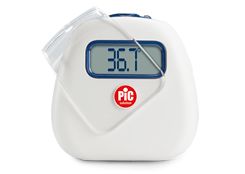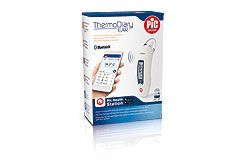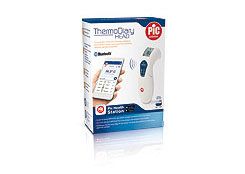
Exploring the world of thermometers
Glass, digital or infrared? Which is the right type for you: the quickest or the most reliable? We help you to choose between the pros and cons of each type of thermometer to take your temperature.
Glass thermometers: accurate, but fragile
These are among the most accurate and reliable thermometers. They are similar to their mercury predecessors, now banned in many countries, but contain a less polluting and completely non-toxic alloy of metals. You may choose them to reduce your environmental impact, but bear in mind that they break easily if you travel frequently. Most importantly gallium, one of the substances contained in these thermometers, is difficult to remove if you spill it onto any surface.
Digital thermometers: reliable and affordable
Characterized by a display showing the temperature, digital thermometers are one of the best choices you can make, combining reliability with affordability. You can use them rectally (if they have a flexible probe), orally or aurally. Are they fast? They have variable measuring times of up to about 3 minutes. Before you buy one, keep in mind that the battery may run down. But don't worry, as long as the thermometer is on and a figure shows on the display, you can be sure that it's accurate.
Liquid crystal thermometers: easy to use, but not very accurate
What are they? They're strips of plastic that show the temperature when placed on the forehead. They're fairly easy to use, but we don't recommend them if you're looking for a precision thermometer.
Infrared thermometers: fast but delicate
You can choose between 3 types of infrared thermometer: ear, forehead, or contactless. Ear thermometers have traditionally been the fastest, taking about 2 seconds to give a readout. The other two types of infrared thermometer take the temperature from the forehead, either through contact or remotely using an optical sensor. The new generation of infrared thermometers are just as fast as the ear variety, but are as precise and easy to use as digital thermometers. Read the instructions carefully before using them, as incorrect use could give a reading that's inaccurate by up to 1 degree.









